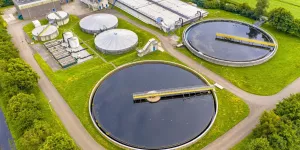Chemical Processing Safety: How Seal Failures Lead to 34% of Industrial Accidents
Chemical processing facilities are complex and high-risk environments. Proper maintenance of industrial equipment and strong safety measures are essential. However, one quiet danger continues to cause serious incidents: seal failure. Industry data shows that 34% of industrial accidents involving hazardous chemicals are due to faulty or worn seals. These failures put worker health at risk, harm the environment, and cause costly operational downtime.
The Hidden Risk of Seal Failures
In safety procedures at chemical plants, seals play a vital role in keeping hazardous materials contained. They prevent leaks from pumps, pipelines, and valves. When a seal fails, the results can be immediate and severe.
Key statistics:
- 34% of chemical processing accidents involve seal-related failures.
- Causes include material incompatibility, poor installation, and prolonged wear.
- Outcomes can vary from chemical burns and respiratory issues to environmental contamination.
Our mechanical seal inspection checklist outlines best practices for spotting problems early and preventing failures.
Why Chemical Exposure Is So Dangerous
A sudden leak can release hazardous vapors or liquids into the workplace. Risks from exposure include:
- Skin and eye injuries from corrosive chemicals.
- Respiratory damage from inhaling toxic fumes.
- Long-term illnesses like lung disease or neurological issues.
Even with workplace chemical exposure limits, a major seal failure can exceed safe levels in seconds. This makes prevention a priority.
Prevention Through Chemical-Resistant Seals
Installing chemical-resistant seals is the best way to reduce accident risks. These seals are designed to tolerate corrosive, abrasive, and high-temperature conditions in chemical plants.
Advantages of corrosion-resistant sealing solutions include:
- Maintaining integrity under harsh chemical exposure.
- Extending operational life, which reduces downtime.
- Lower maintenance costs while meeting process safety management (PSM) standards.
Choosing the right material is crucial—PTFE, Viton®, and EPDM are commonly used, but the best choice depends on the chemical compatibility with sealing materials for your process.
Essential Safety Protocols
Even the toughest seals need strong workplace safety measures:
- Routine Inspections: Use our maintenance schedule guide to plan checks for wear, cracks, and chemical degradation.
- Leak Detection Systems: Install industrial monitoring solutions to catch leaks before they worsen.
- PPE for Chemical Handling: Provide workers with safety gear like gloves, respirators, and protective clothing.
- Employee Safety Training: Offer onsite training programs on recognizing hazards and emergency response.
- Incident Reporting & Review: Examine every leak or near miss to prevent future failures.
FAQ – Chemical Processing Safety
Q1: What causes most seal failures in chemical processing?
A: The main causes are material incompatibility, excessive wear due to high temperature or pressure, and poor maintenance practices.
Q2: How do chemical-resistant seals improve workplace safety?
A: They reduce degradation, maintain containment, and help prevent chemical leaks that could harm workers or the environment.
Q3: What are the health risks of chemical exposure from leaks?
A: Risks range from minor skin irritation to severe burns, lung damage, or chronic illnesses.
Q4: Are safety protocols enough without chemical-resistant seals?
A: No. Safety protocols are most effective when combined with equipment designed for aggressive chemicals. Both are crucial for compliance and safety.
Q5: Which seal materials are best for chemical processing?
A: PTFE, Viton®, and EPDM are common, but the final choice should depend on a chemical compatibility assessment.
Seal failures cause more than a third of chemical processing accidents, but they can be prevented. By using chemical-resistant seals and following safety strategies like regular inspections, leak detection, and employee training, businesses can reduce risks, safeguard employees, and avoid costly downtime.
In the high-stakes world of chemical manufacturing, safety is essential. It forms the foundation for operational success and environmental responsibility. Get in touch with FPE Seals today to find the right seals and ensure maximum durability and performance on the job site.
What to read next...

How Hydraulic Cylinders Power Sustainable Industries
Read more
Common Causes of Grundfos Pump Seal Failure and How to Prevent Them
Read moreSign up to our newsletter
Don't forget to subscribe to our newsletter to receive details of our latest special offers and new products.
Darlington
Telephone: +44 (0) 1325 282732 Email: sales@fpeseals.com
Doncaster
Telephone: +44 (0) 1302727252 Email: doncaster@fpeseals.com
Aberdeen
Telephone: +44 (0) 1224648999 Email: sales@swanseals.co.uk
The Netherlands
Telephone: +31 (0) 162581060 Email: info@fpeseals.com

